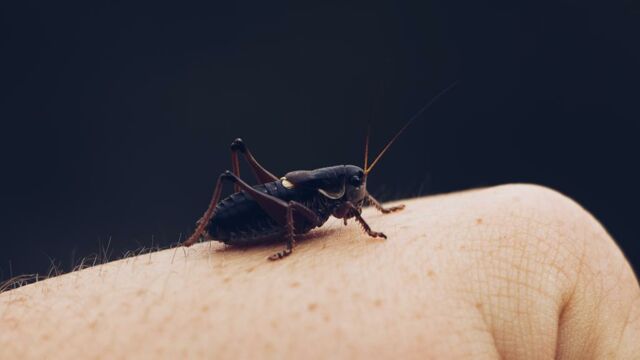The human body is a warm and pleasant habitat for some insects. It's no wonder they like to use your body to lay eggs.
Discover our latest podcast
Botfly, jigger flea, tapeworms...
For example, the human botfly (Dermatobia hominis), found from Mexico to Argentina, stick their eggs to mosquitoes and other blood-sucking insects. When the mosquito bites a victim, the eggs hatch. The larvae then squirm into your skin, creating a painful spot filled with pus. After 5 to 10 weeks, they escape from the spot, quickly reach adulthood, ready to mate and start the cycle again.
Another parasite is the jigger flea, also known as Tunga penetrans. The females of this tropical species dig under your foot to suck your blood, starting with holes smaller than a grain of sand but reaching 2,000 times their size in a week. These insects swell with your blood and lay up to 200 eggs. These eggs fall to the ground and hatch while waiting to cling to another passing bare foot.
Some parasites don't just lay their eggs under your skin. Tapeworms, for example, invade your intestines and can even block your digestive system. In addition, they lay tens of thousands of eggs that hatch, migrate, and can spread to your lungs, muscles, and even your brain.
Some are harmless, but not all…
There is also the loa loa that can be transmitted between people. Their larvae enter through the wound left by a fly bite. After five months of growth under your skin, they reach adulthood and release thousands of embryos per day which then travel throughout your body. You can sometimes see the worms moving under your skin or in your eyeball.
However, not all parasites are dangerous, such as mites which are quite harmless. They feed on the oil on your face and not on your flesh, so they are not noticed even though they populate almost everyone's body. And when it's time to breed, the females lay a single egg in your pores.
In addition, researchers can study your mites to track the migration of your ancestors across the planet, as we usually pass them on from parent to child. So the mites stay in the family. Could these be the kindest of the parasites that lay eggs on our bodies?















